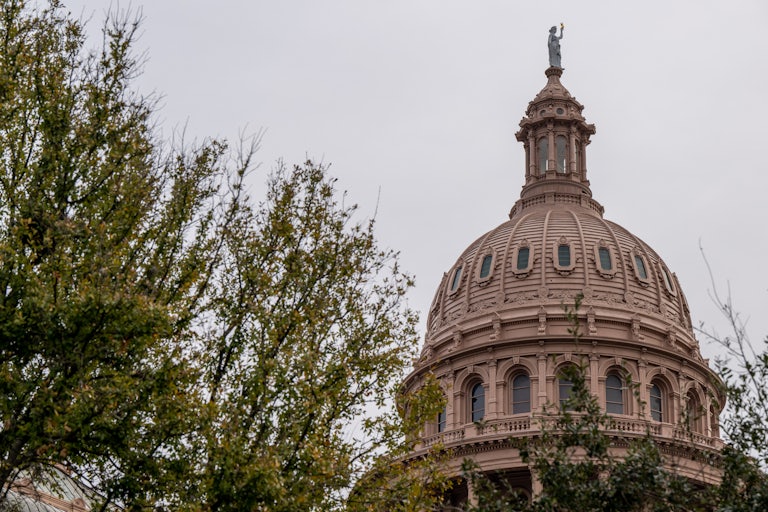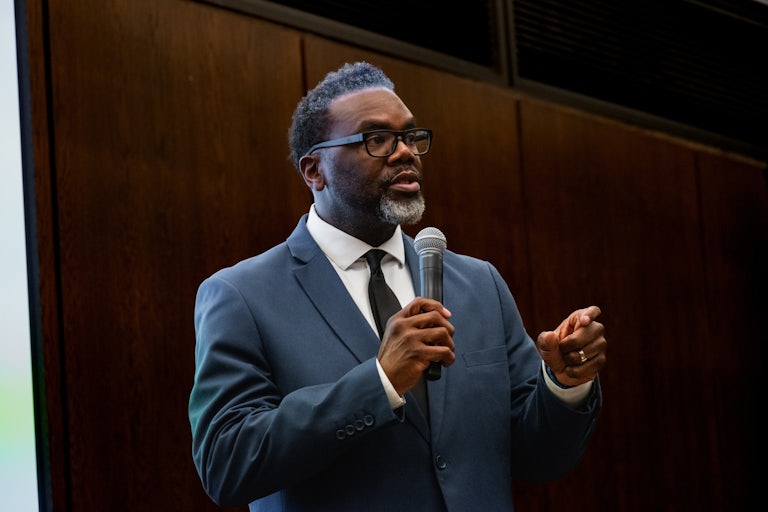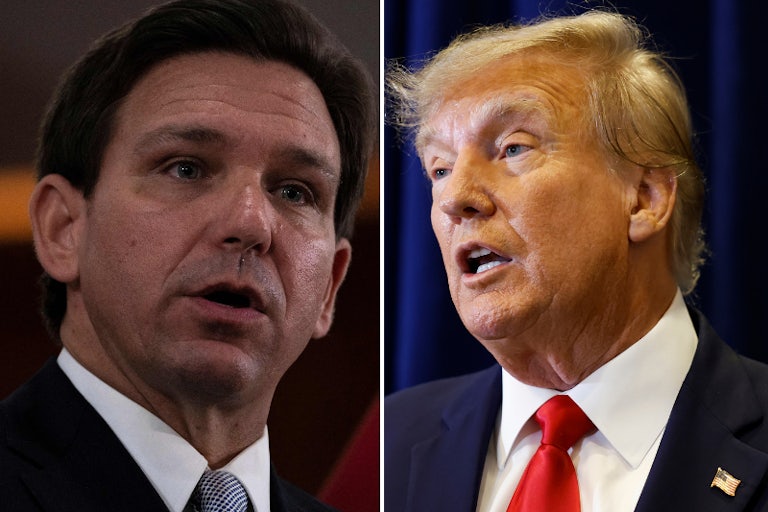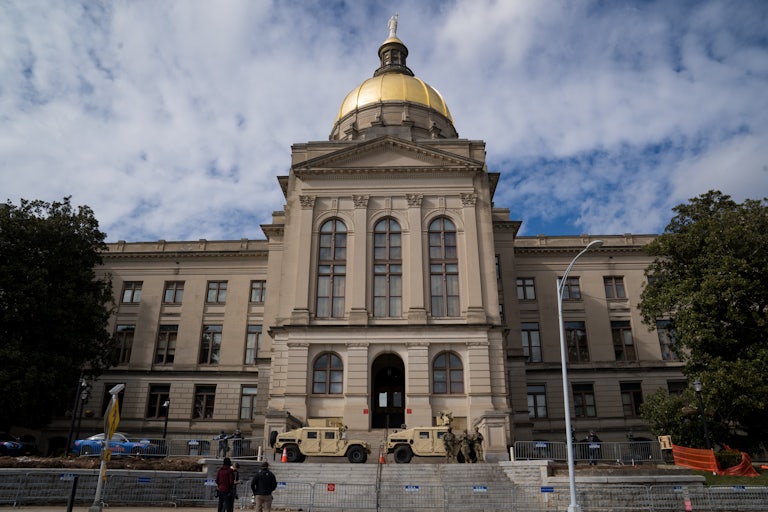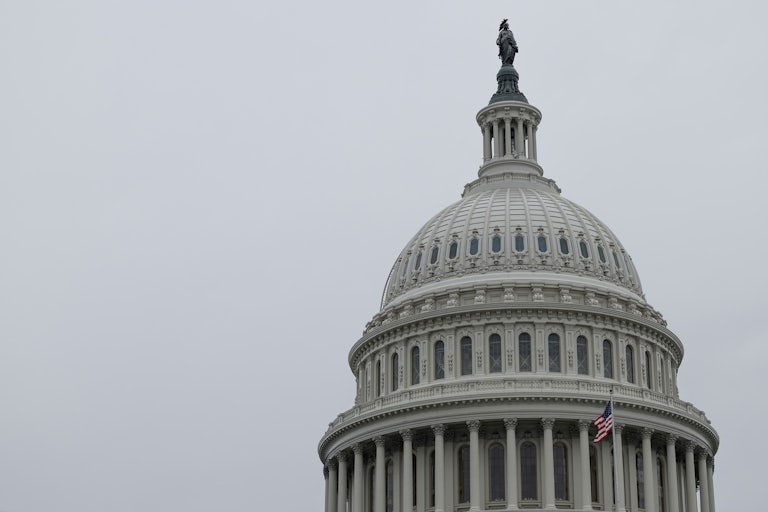Democrats Who Pushed for Financial Deregulation Seem to Have No Regrets After Silicon Valley Bank
The Democrats who joined Republicans in rolling back Dodd-Frank seem perfectly fine with their vote, even after SVB’s collapse.
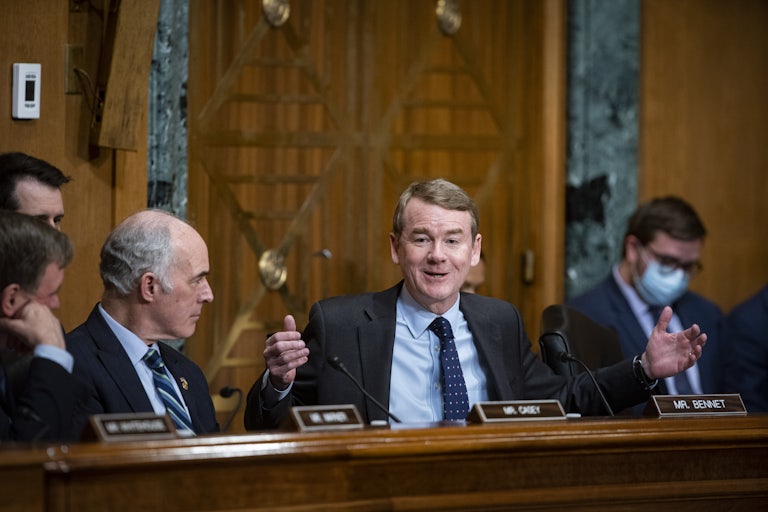
Silicon Valley Bank collapsed last week after a massive bank run, spurred in large part by billionaire investor and GOP donor Peter Thiel. Such a collapse could have perhaps been avoided had the massive bank been subject to higher regulation and scrutiny. But not according to the Democratic senators who helped deregulate the financial industry.
The Democratic lawmakers who voted alongside Republicans in 2018 to roll back key Dodd-Frank regulations, ones that would have subjected SVB to greater regulations, seem to have no regrets for having done so.
In total, 16 Democratic senators joined all 50 Republicans five years ago in rolling back the regulations. Thirteen of those Democrats are still serving in office today, and so far this week, none have expressed regret for their 2018 decision. Most have justified their vote as support for smaller banks, skipping over the fact that the bill treated big banks like SVB as smaller than they were.
Senator Michael Bennet criticized SVB but said that he stands by his vote, under the guise of his support for smaller and rural banks.
Senator Tom Carper said Tuesday that at “this moment,” he doesn’t regret the vote, and instead called for hearings to figure out what happened.
Senator Chris Coons avoided directly answering questions from The Intercept about whether he could defend his vote given what is known about SVB now. “And just what is that?” he retorted, before pausing, adding, “Exactly,” as the elevator doors closed on a senator who cinematically refused to answer a simple question.
Senator Tim Kaine justified his vote by saying his “community banks really needed it.”
Senator Angus King told The Intercept that he would’ve voted the same way to help smaller banks and that there were still some regulations in place on SVB.
Senator Joe Manchin said he’s open to “making adjustments” to regulations but emphasized it was not a mistake to vote for the 2018 bill.
Senator Jon Tester pins the blame on the Fed, rather than the 2018 vote, saying they could have “put the same regulation on them that they do JPMorgan Chase.”
In a statement earlier this week, Senator Mark Warner invoked Dodd-Frank as a North Star to “protect depositors and make sure that our financial system remains stable,” but had little to say specifically about SVB’s management—or his own vote to weaken regulation on them. The Lever found that Warner held a fundraiser at SVB CEO Greg Becker’s home in 2016, and he also received $10,000 in donations from SVB’s PAC.
The offices of Senators Gary Peters, Krysten Sinema, Jeanne Shaheen, Debbie Stabenow, and Maggie Hassan—the remaining Democratic senators who voted for the 2018 rollback—did not respond by publication.
At this point, of course, there is no going back. But if these Democrats want to square the circle of purporting to care about smaller institutions while also recognizing where their vote may have fallen short (they don’t even have to admit they were wrong!), they could begin by supporting Elizabeth Warren’s aptly named Secure Viable Banking, or SVB, Act, which would repeal the provisions of the 2018 bill that allowed for banks like SVB to get by without stronger regulation.
It’s just that easy. The layup is there, if these Democrats want to bank it.
